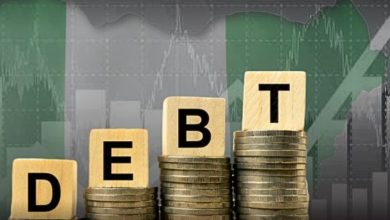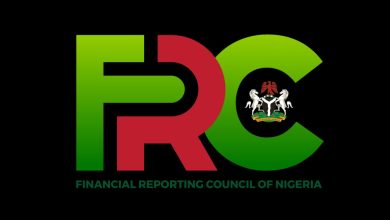Fitch Predicts Nigeria’s Fiscal Deficit Will Widen Ahead of 2027 Elections
Fitch Ratings has projected that Nigeria’s fiscal deficit will widen in 2025 and 2026 due to rising spending, election costs, and debt servicing.
The agency, however, affirmed Nigeria’s credit rating at ‘B’ with a stable outlook, citing reform progress.
Global credit rating agency Fitch Ratings has projected that Nigeria’s fiscal deficit will expand further in 2025 and 2026 due to rising public spending, election-related expenses, and higher debt-service costs.
In its latest sovereign assessment released on Sunday, Fitch affirmed Nigeria’s Long-Term Foreign-Currency Issuer Default Rating at ‘B’ with a Stable Outlook, citing the government’s ongoing reforms and better foreign exchange liquidity.
However, the agency warned that high inflation, low revenue generation, and weak governance structures continue to weigh on the country’s credit profile, leaving little fiscal space to support strong economic growth.
Rising deficit and spending pressure
According to the report, Nigeria’s budget deficit is expected to average 3.1 percent of Gross Domestic Product between 2025 and 2026 as government spending rises ahead of the 2027 general elections.
Fitch linked this trend to an increase in wages, social welfare payments, security expenses, and growing interest obligations. The agency noted that, while government revenue is forecast to rise to 12.4 percent of GDP by 2027, up from 9.8 percent in 2023, it remains well below the official target of 16.2 percent and the average of 17.8 percent for other countries rated ‘B’.
“We expect revenue to rise gradually through new tax laws starting January 2026, which are aimed at improving tax collection and reducing leakages,” the report stated. “But revenue will still fall short of government targets due to weak administrative capacity and enforcement issues.”
Structural weaknesses and fiscal strain
Fitch identified several long-standing obstacles to revenue growth, including ineffective tax enforcement, a large informal sector, and institutional weaknesses that limit fiscal discipline.
The agency’s proprietary Sovereign Rating Model assigned Nigeria a score consistent with a ‘B-’ rating, reflecting a mix of strengths and weaknesses. It cited positives such as a large domestic economy, access to local debt markets, and vast oil and gas reserves, but also noted persistent challenges like high inflation, insecurity, and low non-oil revenue.
Economic and monetary outlook
Fitch commended the Central Bank of Nigeria (CBN) for reforms that have improved foreign exchange market liquidity and stabilized the naira. It said foreign reserves rose to $42 billion as of September 2025, though they are expected to fall to around $40 billion by the end of 2026 as import demand increases.
Nigeria’s current account surplus also improved sharply, from 1.3 percent of GDP in 2023 to 6.8 percent in 2024, boosted by stronger remittances and reduced refined fuel imports following increased local refining.
Inflation, though easing, remains among the highest in its rating group. Fitch said inflation dropped to 20 percent in August 2025 from an average of 33 percent in 2024 and could fall further to 17 percent by 2027. The recent 50-basis-point cut in the Monetary Policy Rate to 27 percent was described as a cautious step to encourage growth while keeping the naira stable.
Debt burden and growth projection
Nigeria’s total public debt is expected to ease slightly from 39 percent of GDP in 2024 to 37 percent in 2027, supported by strong nominal growth and access to domestic borrowing. Still, Fitch estimated that interest payments will consume about 43 percent of total revenue in 2025, underscoring a tight fiscal position.
The agency forecast economic growth of 4.2 percent in 2025, up from 3.9 percent in 2024, driven by higher oil production, exchange rate stability, and gradual recovery in non-oil sectors. Oil output, excluding condensates, is projected to reach 1.5 million barrels per day, an improvement from 1.34 million barrels in 2024 but still below pre-pandemic levels due to infrastructure decay and oil theft in the Niger Delta.
Policy and reform outlook
Fitch observed that the CBN’s new capital requirements for banks are reshaping the financial sector, with most lenders expected to exit regulatory forbearance by December 2025.
It also maintained Nigeria’s Environmental, Social, and Governance (ESG) score at ‘5’, pointing to weak institutions, corruption, and uneven enforcement of the rule of law.
According to the agency, the outlook could improve if the government strengthens revenue mobilization, sustains disinflation, and implements structural reforms that promote long-term growth.
“Sustained progress in disinflation, stronger growth, and improved governance could support an upgrade,” Fitch said, adding that renewed liquidity pressures or weak fiscal discipline could lead to a downgrade.
Reforms and social pressures
Nigeria’s credit rating has remained at the ‘B’ level since 2023, reflecting limited fiscal flexibility and a heavy debt-service burden. The administration of President Bola Tinubu has implemented major economic reforms since mid-2023, including fuel subsidy removal, exchange-rate unification, and new tax measures to raise non-oil income.
While these steps have improved transparency and attracted investor interest, they have also worsened the cost of living and heightened social tension. Analysts have urged the government to strengthen social protection schemes to cushion the impact on vulnerable households and sustain public support for ongoing reforms.



